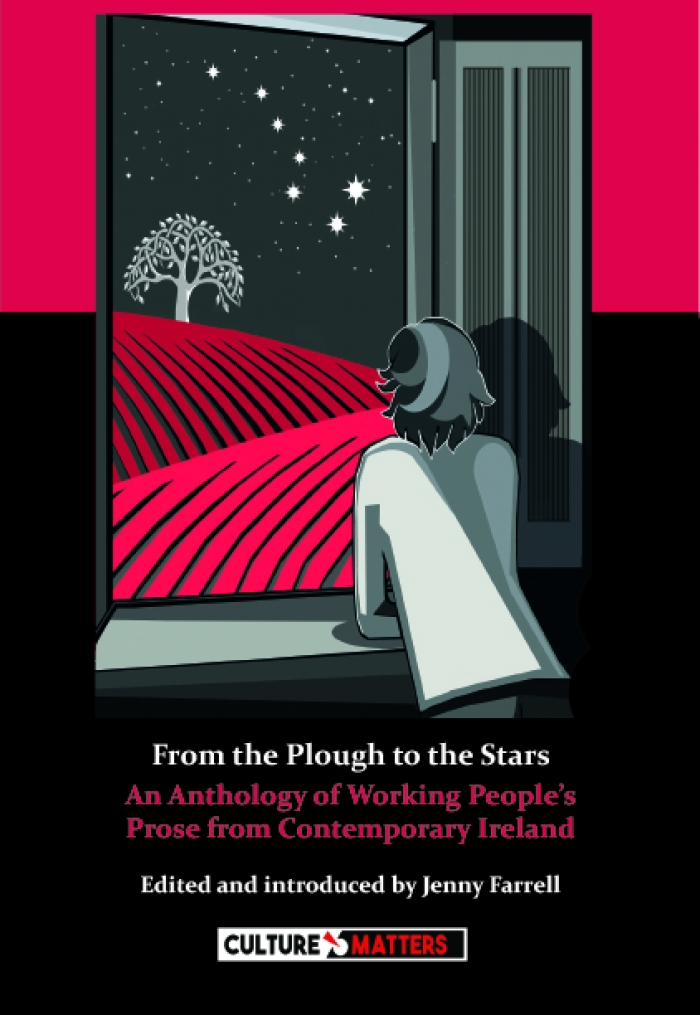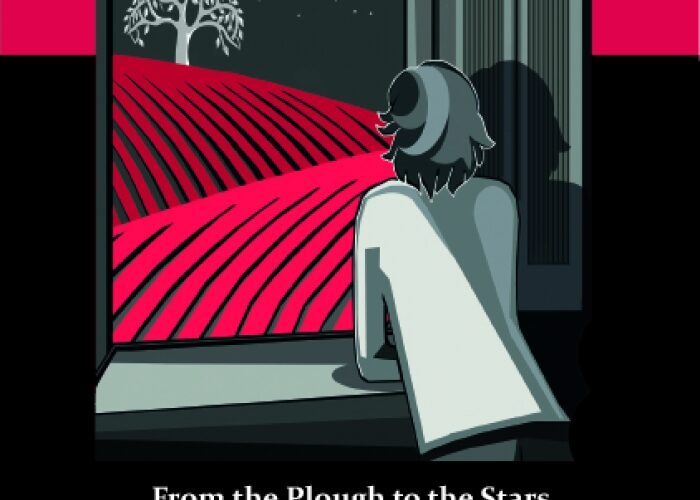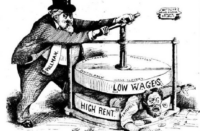■ From the Plough to the Stars: An Anthology of Working People’s Prose from Contemporary Ireland
“The cooks, the cleaners, the porters: Unsung heroes on the frontline,” the Irish Times declared in early May 2020, suddenly recognising that a society cannot function without the working class, for just a brief moment the insight that these heroes were also the most disadvantaged class in our society.
In fifty contributions of short fiction and life writing the contributors to this anthology give voice to working people’s experience in contemporary Ireland. The contributors hail from the whole of Ireland: rural or urban, female or male, younger or older, writing in Irish or English.
Writing in Irish, Celia de Fréine’s article describes the pandemic as a brief breaking up of class rule, while in other accounts resilience to adversity emerges, for example in Rachael Hegarty’s “The Dodgy Box.” Liz Gillis emphasises the strength gained from growing up in a working-class estate.
Emigration and holding on to identity are the themes of Eoin Ó Murchú’s memoir. Set during the period of armed conflict in the North, Brian Campfield’s article shows how working-class unity was achieved for a moment in honour of the legendary Peadar O’Donnell.
British military violence, occurring at the same time in Belfast, features in Seán Maguire’s “Window Pain,” while the long-term effect of sectarian thinking is depicted in John D. Kelly’s “Meandering.” Andy Snoddy emphasises the importance of Irish for Protestants as well as emphasising the significance of the Protestant tradition in the fight for Irish independence.
Anne Waters evokes the unhealed trauma of the Magdalen laundries. Jim Ward writes in the voice of a female Polish waiter. Solidarity with eastern European workers also features in Alan Weadick’s “Transcendence.” Linda Ervine’s memoir shows how she broke free from humiliation and violence and achieved self-determination. Solidarity and fighting back are the main themes in Seosamh Ó Cuaig’s memoir, “The 1970 Cement Strike.”
This is the first literary project of its kind and scope to be supported by the trade union movement. Gerry Murphy, president of the ICTU, writes in his foreword: “It is also apt, in the midst of the Covid-19 pandemic, that the true value and critical importance of workers’ contributions to our communities, worldwide, takes centre stage. These contributions expose the parasitical captains of industry and their fellow travellers in global finance.”
The writers create a complex image of Irish working people today, one that challenges conventional stereotypes of their class. They are a group who will ultimately rise above the inferior station assigned to them by society and will seek to create a just society for all. In the words of James Connolly, “A free Ireland will control its own destiny, from the plough to the stars.”
■ From the Plough to the Stars is available from Connolly Books, Dublin (https://www.connollybooks.org/).







